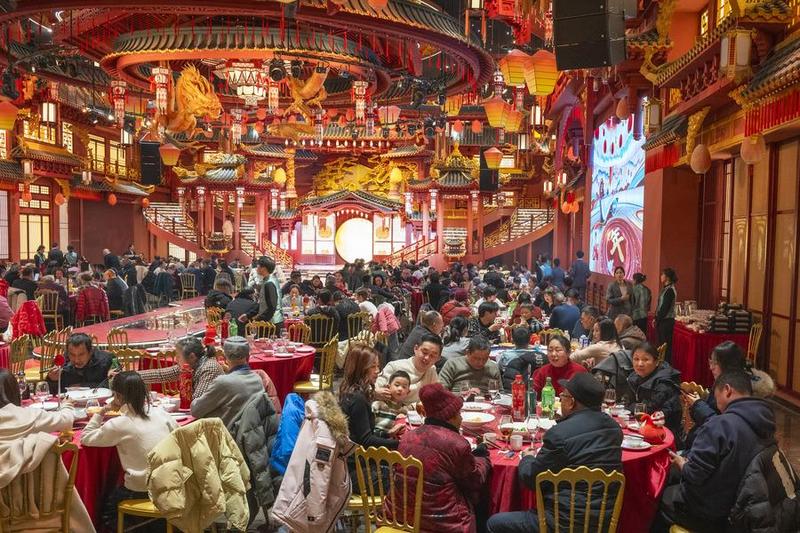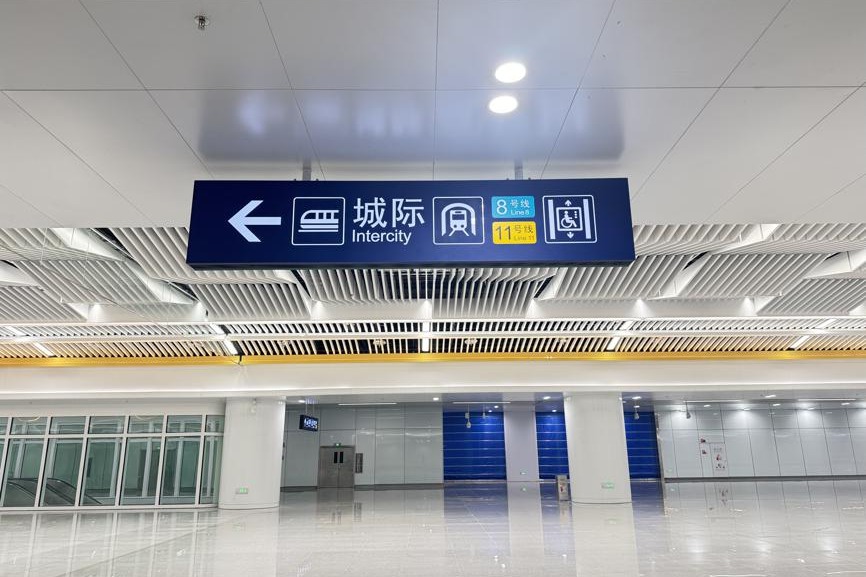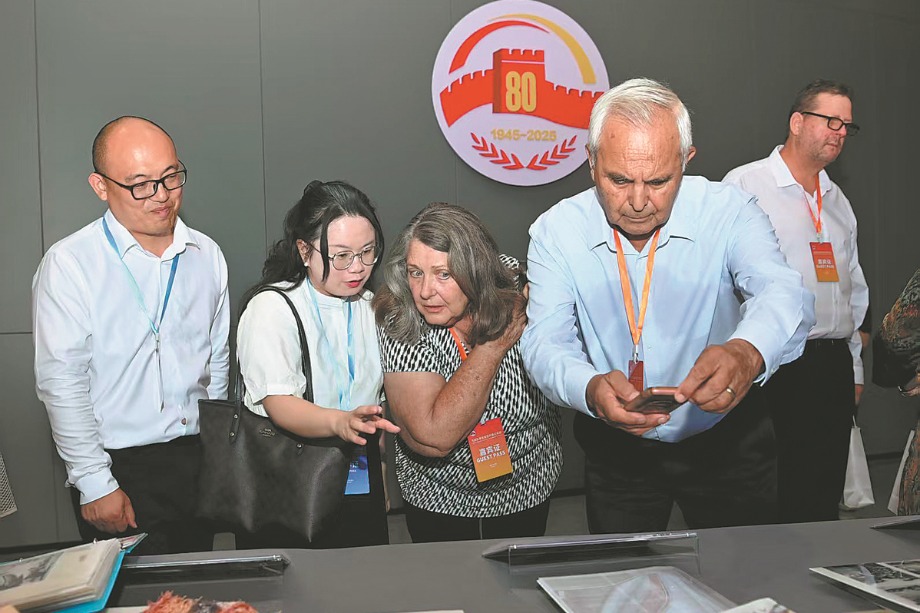'Transparent kitchens' win diners' trust via openness


During peak lunch hour at a busy restaurant in Chengdu, Sichuan province, four chefs work in perfect unison, deftly churning out multiple dishes as flames leap from the woks. However, their expertise and execution are not only of interest to the customers waiting for the food, but also to over 50,000 viewers watching them live at work on Douyin, China's short-video platform.
Luoxiaoyang Home-Style Cuisine, which opened its doors in June, has attracted more than 1.7 million followers on Douyin by livestreaming what goes on in its kitchen.
Responding to increasing public concern about food safety, a number of restaurants nationwide have begun livestreaming their kitchen operations - a strategy aimed at both winning diners' trust and boosting visibility through online engagement.
The growing interest in "transparent kitchen" livestreams follows a heated online debate sparked by celebrity entrepreneur Luo Yonghao. Last week, Luo criticized domestic restaurant chain Xibei on China's popular social media platform Sina Weibo, alleging that many dishes were premade. His post went viral, prompting public discussion about food safety and kitchen transparency.
Kitchen livestreams are not exactly new. In March, the State Council, China's Cabinet, issued a guideline strengthening food safety supervision, urging platforms and merchants to implement"internet plus transparent kitchen"initiatives and enhance oversight on delivery-only restaurants through public monitoring.
Sun Juanjuan, an associate professor at Hebei Agricultural University and researcher at the Center for Coordination and Innovation of Food Safety Governance, said, "As customers have begun focusing on how the food is being prepared, restaurants have shifted focus from price wars to hygiene standards."
However, some industry insiders worry that the livestreams could become mere "performances".
Zhong Kai, a food safety expert from the China Food Information Center, said the actual impact of livestreaming on food safety supervision might be more about deterrence than regulation.
"Issues such as pesticide residues or cross-contamination are hard to catch via livestreams. Most food safety incidents that have been exposed have been due to snapshots of chefs not wearing masks or hats, or catching glimpses of rats in kitchens," he said.
Yet, Sun said: "Implementing 'transparent kitchen' measures in the mass catering sector has always been a regulatory challenge. Now, with public enthusiasm and demand, it can help accelerate implementation across various regions."
- Tianjin hosts first drone soccer league for youth
- Scenery of Nam Co, China's Xizang
- HKSAR chief executive pledges full support for work of IOMed
- Chongqing-Taiwan Week signs 3.29 billion yuan in projects
- Beijing conference unveils global science park initiative
- Hong Kong universities to admit more non-local students from 2026





































